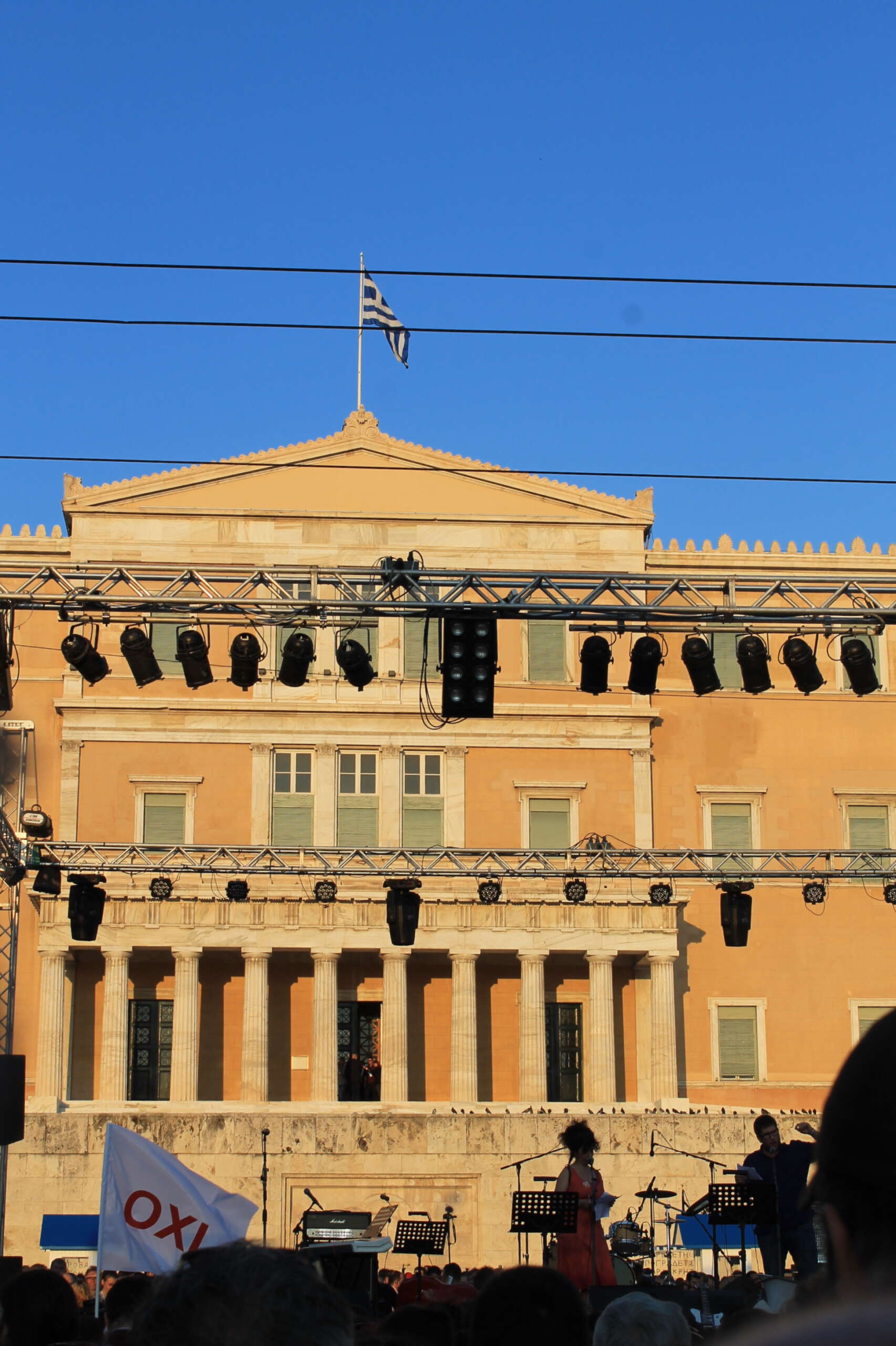The YES/NO Greek referendum vote announced on June 25th by the Syriza government, taking place today, is a call for the Greek people to grant the country some ground in negotiating a proposal for the restructuring of the European political and economic system. Since the announcement of the referendum the country has split into YES and the NO camps. The YES camp is comprised of organizations and people of power tirelessly terrorizing the countries public by propagandizing and saying that a NO vote would represent a vote against Greece’s economic and political participation in Europe. The NO camp, represents the part of Greek society which has had enough with the current conditions and is willing to express (what ideally would be) a homogenous veto against the irrational, impractical and non-beneficial austerity measures which do not, have not and will not ever serve Greece’s debt repayment.
There is a part, in the Discourse of Voluntary Servitude where Etiene de la Boetie calls the meek and oppressed to take action, he says that:
To achieve the good that they desire, the bold do not fear danger; the intelligent do not refuse to undergo suffering. It is the stupid and cowardly who are neither able to endure hardship nor to vindicate their rights; they stop at merely longing for them, and lose through timidity the valor roused by the efforts to claim their rights, although the desire to enjoy them still remains as part of their nature. (p.116)
This moment is a calling for Greek society to exercise their boldness so as to be able to, “achieve the good that they desire.” The shortcut voting announcement has not only forced every participatory societal actor to engage with direct issues concerning the countries role in the European Union; it has also caused a frenzy among the common workers, politicians, journalists, public personas, academics. Most importantly, it has exposed the Greek media as a highly biased organization that serves corporate interest to an almost absolute degree. As it has been stated by far more well versed journalists and intellectuals than myself, a NO vote would not mean the end of the countries destitute state it would however represent a societies massive outcry of despair in the face of an inept system.
The inequalities harvested by the lack of economic and political stabilization in the Eurozone have resulted in what seems to be the nations deadlock. Greece’s inability to compete among its economically more powerful and developed European relatives has lead the country in what could be, an everlasting economic void.
No matter what the outcome of the referendum, the July 3rd NO demonstration that was held in Syntagma, marked Greek society in that for the first time in years, not a single mass episode of violence was carried out despite the fact that the banks had been closed throughout the week and despite the 50-euro bank withdrawal limit. The Syntagma July 3rd gathering is a note to Greek society and to the rest of the world that people are capable and willing to exercise solidarity to each others particularities of hardship. Moreover the magnitude of people who gathered in Syntagma on July 3rd is a clear validation of what Hannah Arendt would refer to as Power, which for Arendt corresponds to, “the human ability not just to act but to act in concert. –Power- as something that is never the property of an individual; –Power- as something that belongs to a group and which remains in existence only so long as the group keeps it together. What we refer to power without metaphor –Arendt says- is ‘strength’.” The vitality of Greece’s moment is shaped through the fragility of its circumstance, which to this point has compelled a whole society to confront itself (and in turn the rest of the world) while exercising its boldness and Arendtian strength.


